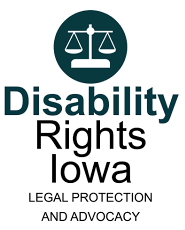Class-action lawsuit: Is Wellmark implicity biased against its Black employees?

As a Black woman, Janice Lintz said she became accustomed to navigating racial bias and microaggression on a regular basis in her nearly four decades working at Wellmark Blue Cross and Blue Shield in Des Moines.
However, after learning firsthand from a number of her peers how deep-seated and pervasive the problems actually were at the company, she realized she had to take action to address them.
Lintz, who will have been with Wellmark 39 years this December, in June filed a lawsuit against her employer along with two other longtime employees who are also African American — Tylonda Mason and David Tindrell — alleging that the health insurance company has violated their civil rights by repeatedly treating them differently from their white co-workers.
The lawsuit alleges that African Americans working at Wellmark “have been systematically denigrated and harassed, denied training opportunities and mentorship given to Caucasian employees, been excluded from promotions, subjected to higher and more subjective standards than other employees in all aspects of employment, and required to meet more onerous criteria than their coworkers.”
The three employees — each of whom is still employed by Wellmark — are among approximately 70 African Americans who are currently part of Wellmark’s roughly 1,900-person workforce in Des Moines, the complaint estimates.
That number — about 3.5% of its workforce — is far below being representative of the 6% African American demographic for the state, the complaint notes. As noted in the One Economy report, Des Moines’ African Americans make up approximately 11% of the metro population.
The petition is seeking declaratory and injunctive relief for all of those employees as a class that would include being promoted to the positions they would have held absent discrimination, as well as being paid lost wages and benefits and compensatory damages and attorney fees totaling up to $5 million.
Among specific actions taken against Lintz, according to the complaint: She has been passed over for promotions, has been promised but denied training and mentorship, and was downgraded on performance evaluations to justify Wellmark’s failure to promote her and her eventual demotion.
In an interview with the Business Record, Lintz said that in addition to actions against her by Wellmark that were “blatantly discriminatory,” she felt compelled to reach out to civil rights attorney Roxanne Conlin because she knew that her experiences were not limited to herself.
“I knew what my experiences were, but the sheer numbers really got to me as well as the lack of hope that anything was going to be done about it,” Lintz said.
Wellmark officials declined to be interviewed for this article, but submitted a written statement by email in which the company denied the allegations made in the complaint.
“Wellmark has a long-standing history and commitment to supporting and celebrating diversity and inclusion,” the statement reads in part. “Not only is inclusion a core value, it is intentionally woven into the way we do our business and how we support the communities we serve.”
Company officials further stated: “Based on Wellmark’s investigation, the allegations in the lawsuit are unfounded and without merit. The allegations are not aligned with who we are and what we stand for as a company. We look forward to the opportunity to fully vindicate ourselves against these claims.”
Conlin, who has represented plaintiffs in civil rights cases for more than 50 years, said the employees’ longevity with Wellmark was among the most important factors she considered before taking the case. In addition to Lintz’s tenure of nearly 39 years with Wellmark, Mason has worked for the company for more than 28 years, and Tindrell has been with Wellmark for 23 years.
“If they were bad employees, they would have been long gone,” Conlin said. “They were good employees, and what happens to good African American employees in a company that has not addressed implicit bias is that the great things that they do are overlooked — they’re downgraded and discounted, they’re less valued. They’re not looked at in the same way that the very same accomplishment would be looked at if the accomplisher was white.”
In its statement to the Business Record, Wellmark officials touted the company’s diversity and inclusion education efforts for its employees.
“For our employees, we provide a wide variety of learning and development opportunities to ensure each employee has a voice to feel respected, valued, and appreciated for their unique strengths and individuality,” Wellmark officials wrote.
“For our communities, it means backing that message up by donating to organizations working toward equality and change to make our communities stronger. Further, Wellmark’s inclusive culture has been recognized throughout the years by highly-respected organizations and publications.”
In June, for instance, Wellmark CEO John Forsyth was recognized by LGBTQ advocacy group One Iowa and dsm Magazine with an LGBTQ Legacy Leader Award as this year’s Ally award winner.
Among other recognitions received this year, Wellmark in May was one of 18 companies nationally to receive an inaugural Diversity Team Award from Profiles in Diversity magazine. The award specifically cited the work of the Wellmark Inclusion Council, “whose work and leadership supports and advances diversity and inclusion within Wellmark and the communities they serve,” according to a press release by Wellmark.
Notably, the legal complaint filed by Conlin on behalf of the three employees details claims that discrimination against Lintz occurred in connection with her role as a member of the Wellmark Inclusion Council. According to the complaint, inaccurate reviews by her supervisor led her to be disqualified from serving on the inclusion council and she was held to different standards than a person who subsequently held a communications role with the council.
Lintz, who most recently held the position of organizational learning and development consultant, had held a volunteer role on the 18-member inclusion council since 2014. She was unable to continue as a member of the council after receiving an unfavorable performance review of “needs improvement” for 2018. According to the complaint, she tried without success to get her supervisor to seek input from co-workers and company leaders about her work, which the supervisor did not attempt to do, even though a previous supervisor had discussed a promotion with Lintz.
Lintz said a particular instance she encountered while she was communications chair of the inclusion council led her to interview a number of Black employees at Wellmark to learn about their own experiences, which revealed a pattern of discrimination against African Americans. The incident involved Lintz being told by the company’s inclusion leader that discrimination didn’t exist within Wellmark’s walls, and an article referring to discriminatory behavior being “scrubbed” of those references.
She was ultimately told that her existing position was being eliminated and that she would be reassigned to a position with a lower employee grade. Lintz also detailed in the complaint how she was earlier bypassed for consideration in leading or participating in several projects, among them an expansion of a project in which she was told she would be involved.
The Business Record asked Conlin: When you have a company that has been recognized for diversity and inclusion efforts, does that make proving a discrimination case against it more difficult?
“What it says to me,” Conlin replied, “is that Wellmark is unconscious of its bias and has convinced the external world that it’s doing a good job. If you’re inside Wellmark and you’re Black, you know that’s not true. To me, it’s akin to a defendant in a racial discrimination case who tells me, ‘Some of my best friends are Black.’
“People are marching in the street because African Americans have been the victims of not just discrimination, but violence by police, and not just in Washington, D.C., or Minneapolis or Atlanta, but here in Des Moines,” Conlin added. “The problem is a very deep one, and the answer has to be equally deep, and it’s going to be very difficult.”
Among behavior detailed by the plaintiffs in the complaint, Mason recounted how she had to repeatedly appeal to her supervisors and senior management to take action against a white co-worker who repeatedly used a racial slur in front of and about her. After initially being told, “Oh, that’s just how [that employee] is” and to ignore it, the employee was eventually disciplined but continued the behavior. It was only when Mason continued to press the issue that the employee was terminated, according to the complaint.
For Tindrell, the bias against him was much more subtle, but equally hurtful, he said in an interview. While the company provided training sessions for leaders about unconscious bias, for instance, those lessons did not translate to how leaders actually treated subordinates of color.
In the training, “we worked with various scenarios where we had these work sessions and we had examples of where two people were [rated as] average workers and they happened to be white, and yet their performance ratings should have been less than average,” he said. “But they were rated at average. And then the scenario had a Black person that was a top-level performer and delivered on every competency and skill set, yet the rating that was given by many of the whites was average or less than average.
“So when [Lintz] subsequently approached me, I got to thinking about that session I had in leadership training and what I was actually experiencing myself. … When my performance rating with my new leader began to decline, it didn’t match up with the results that I produced,” he told the Business Record. “So when you look at that, you ask yourself intrinsically, what’s going on here?”
When a different position was readily offered to him when Tindrell asked what he could do about the reviews, it became clear to him the company was seeking to use poor reviews to make a case against him to either demote him or remove him, he said. Tindrell, who also is an ordained minister, said he believes the situation is divinely inspired, and one that he is hopeful will help bring about systemic change.
“That’s why I’m on board with it,” he said. “I want long-term change and I want to be involved in a program where I can help them change.”
Lintz, Mason and Tindrell are not the only three Black employees that Conlin has interviewed in the past 18 months before and since filing the lawsuit.
“I have talked to others and it is, in fact, a systemwide situation,” Conlin said. “It’s happened again and again and again. Some African American employees gave up. My clients believed in Wellmark; they believed [that Wellmark] would make good on their promises. They believed that they could finally, at long last, be seen for who they are and what they are doing. That did not happen.”
Coincidentally, the class action lawsuit was filed by Conlin on May 22; three days later, George Floyd was killed by a police officer in Minneapolis, sparking protests nationwide. Locally, news reports about the lawsuit came out two days after Floyd’s killing.
“We didn’t do this because of the awareness that happened [in late May],” Lintz said. “It happened to coincide with the [broader issue of racial discrimination] getting recognition publicly.”
Lintz emphasized the great amount of time and effort involved in bringing their case forward. They had reached out to Conlin nearly two years ago, and more than a year ago went through the process of filing a complaint with the Iowa Civil Rights Commission.
“People don’t understand how difficult this was for us to come to this decision,” she said. “We didn’t do it because of George Floyd — we did it before George Floyd happened, knowing that racism existed and was still happening, and needed to be addressed.”
Is Wellmark any different from other employers in Des Moines when it comes to race behavior?
“I don’t think so,” Lintz said. “I think it’s indicative of the community. I have not worked at other companies, but I do work with a lot of individuals because I’m an executive member of the NAACP Des Moines branch and I work with other nonprofits, so I hear others’ experiences, and I think it happens. I think this is a great opportunity for Wellmark to … open up to having a conversation and to make a change.”
WHAT HAPPENS NEXT
A hearing is scheduled Sept. 22 for the judge to consider motions to dismiss by Wellmark’s attorneys. If those motions are dismissed, the case will proceed with the pretrial discovery process, in which each side can obtain evidence from the other.
READ MORE: Des Moines Civil and Human Rights Commission has stepped up pursuit of discrimination cases









